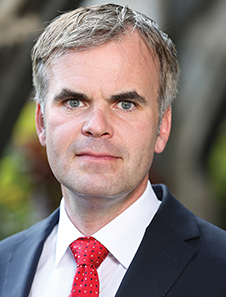The German city of Munich is a creative, technological and financial centre, which has seen its population expand quickly over recent years. Success, however, has come at a price.
Out of 24 major cities around the globe, the state capital of Bavaria is at most risk of a property bubble, according to UBS. A scarcity of land for development within city boundaries has led to high property prices and a skills shortage, as lower paid workers find it increasingly difficult to keep pace with soaring rents and house prices.
High-density living
“Munich has the highest level of housing density in Germany, with the most residents per square metre,” says city treasurer Christoph Frey. “One of the biggest challenges facing local government is to ensure that teachers, hospital workers and other essential contributors to the city’s welfare are able to live in affordable homes.” Apartment prices in Munich rose 189% between the end of the financial crisis and 2019, compared with a 106% rise across Germany.
Munich has an annual budget of about €8bn, funded through a mix of local and federal taxes. It is in a strong fiscal position, having reduced debt from €3.4bn in 2005 to just €680m in 2019, amounting to just €408 per resident. However, municipal authorities expect to spend €10bn to €15bn on infrastructure projects over the next decade.
“While we are in a very healthy budgetary situation, as we planned our investments we knew that we would need to borrow money, and we decided that we would make a start in 2020,” says Mr Frey.
A popular format
One proposal was to issue a social bond, the proceeds of which could be used to buy properties and help address the city’s housing needs. Social bonds are a relatively new member of the sustainable bond family. The first social bond was sold by Spain’s Instituto de Crédito Oficial in 2015 to help finance small and medium-sized enterprises in economically depressed regions of the country.
The format has since proved popular, seeing billions of dollars of issuance, led by sovereigns, supranationals and agencies. To qualify as a social bond, the borrowing must be for new and existing projects with positive social outcomes, and must be governed by the social bond principles that provide guidelines on transparency, disclosure and reporting.
Since the social bond concept was new to Munich’s city council, there was a fairly lengthy timeline in preparing for the issuance, with the council first speaking to banks in mid-2019. BayernLB was chosen as technical lead, with UniCredit providing the structuring of the sustainability component. Both were mandated as lead arrangers and were supported by Stadtsparkasse München as co-lead.
“We planned to use the proceeds for very specific projects, which was to spend €177m on housing and to build a school campus for €250m,” says Mr Frey. “We were very keen to be democratic and for citizens to have a strong relationship with the project, and to be able to invest themselves, so we planned to list the bond on the Munich Stock Exchange and for investors to be able to buy the bond through specified bank branch networks.”
Public participation
To facilitate as wide as possible public participation, the city planned to sell the bond in denominations of €1000. The bond tenor was set at 12-and-a-half years, a slightly unusual maturity that was designed to make the fixed coupon more affordable for citizens, but not be too far away from institutional benchmarks. The initial plan was to sell €100m of the bonds.
“Our ambition to do €100m was modest against our borrowing needs of about €4.5bn over the next five years,” says Mr Frey. “But given this was the first social bond issued by a municipality in Europe, our primary aim was to test the concept and see if there was appetite among investors.”
Following discussions with investors in late 2019, the city decided to proceed in mid-February, just before the coronavirus outbreak took hold in Europe. Working with the Munich Stock Exchange, the city put 80% of the bond on an order book, with 20% reserved for the retail market. Pricing on the three-year security was initially set at mid-swaps plus 20 basis points (bps) and later tightened to mid-swaps plus 15bps. The coupon on the unrated security was 0.25%.
“We were very happy because in the end we could have filled the order book five times over,” says Mr Frey. “We also saw a lot of interest from private investors, who continued buying in the days following the sale, pushing the price higher. I think a lot of people were looking at the investment as something they just wanted to be involved with, rather than only seeking a financial return.”
The impact of the coronavirus in recent weeks means Munich city’s budget plans have been thrown into disarray. But given the likely need for additional borrowing, says Mr Frey, it probably will not be long before the social bond sees a welcome return.



